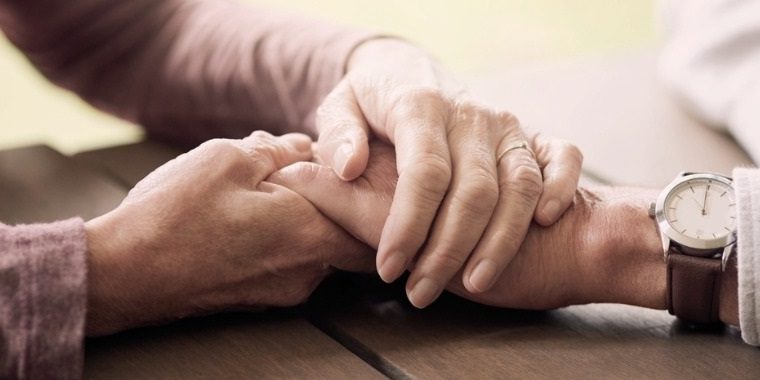When it feels like no one understands

Caregiving can be a lonely business. It doesn't have to be.
It's a cruel irony of being a caregiver. Often the more of yourself that you pour out in taking care of another person, the more alone you feel.
True or not, it can feel like no one else in the world understands what you're going through.
And those feelings matter. The psychological, social and emotional issues are every bit as important as the nuts and bolts of family caregiving challenges. Family caregivers, for example, are twice as likely to suffer depression than non family caregivers. And it’s even more extreme for women, says John Schall, CEO of Caregiver Action Network (CAN). “If you are a wife caring for your husband you are literally six times more likely to suffer depression than a non-caregiving wife.”
But finding support in the people around you can help. Some strategies to take.
Don't get frustrated. Get prepared.
The next time you want to ring someone’s neck when they ask vaguely, “Is there anything I can do?” be ready and be bold. Have three or four specific things in mind that someone else can actually do. For example, “As a matter of fact I just really need to escape on Wednesday. Are you free from 12 to 3?” Or you can ask someone to go to the grocery or make a meal.
“If you have those specifics, it’s harder for people to back out," says Schall. "In addition to getting you some help it also gets around the frustration of these vague offers of help which don’t do a darn thing for you except make you even more frustrated.”
Find people who can relate.
“I think the smartest people to talk to are other caregivers,” says Kathleen Dempsey, RN, BC, BSN, CEO and founder of Pathfinder Care Management in Minneapolis, MN. “Because from a very practical level and for emotional support, there’s just no substitute for someone who is walking or has walked in your shoes. Many people don’t like or don't have time for in-person support groups, but there’s so much available online. This is where reading another caregiver’s blog can be really helpful, “Oh, okay, I’m not crazy for feeling this way.”
Schall agrees, adding that CAN’s community forum is the most visited area of the website. “If you have feelings of anger, clearly the last person you’re going to want to express them to is your loved one. But at the same time, bottling them up doesn’t do you any good either,” says Schall. “You’ve got to be able to vent and talk about it in some way.”
Lean on a professional listener.
Many caregivers also find seeing a professional therapist or counselor experienced with caregiving issues very helpful. This is especially important when feeling stressed or depressed. “Depression is the one thing that we’re always trying to get family caregivers to be very, very aware of,” says Schall. In addition to looking out for the signs of depression yourself, make sure you’re getting screened by your doctor and getting help if you need it. “If you ignore it,” adds Schall, “at some point it’s going to catch up with you.” And then you won’t be strong enough to care for a loved one.
I'm also dealing with...
Community
Did you know that there are local agencies in every community to help you find the services you need?
Use the search feature, then input your zip code to find local help.
Two popular areas of need for caregivers:
3 Keys to Taking Care of You
- It's a marathon, not a sprint. Pace yourself. When an issue comes up, ask: "Does this really need to be done? Does it need to be done now? Does it need to be done by me?"
- Know yourself—who you are, and what you need. This is what it takes to make sure you're getting what you need to stick around through tomorrow.
- Watch out for the big three: Anger, Guilt, Depression. Anger and guilt can crop up anytime, but guilt tends to be in the longer term. These feelings are common, and there are lots of resources available to help you. Use them.

